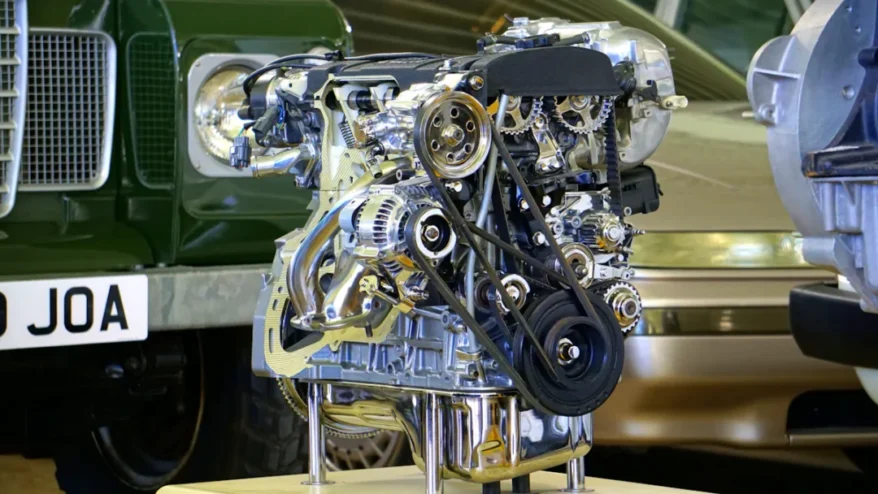B Tech Mechanical Engineering Course Outline and Subjects
Estimated reading time: 10 minutes
B Tech Mechanical Engineering opens the door to a dynamic world of innovation and problem-solving. Understanding the course outline and subjects is crucial for aspiring engineers. It provides a roadmap to success, guiding students through essential topics and learning objectives. By delving into the core curriculum and elective subjects, individuals gain a comprehensive understanding of mechanical principles. This knowledge equips them with the skills needed to excel in various industries, from automotive to aerospace. Embracing this educational journey sets the foundation for a fulfilling career in Mechanical Engineering.
Overview of B Tech Mechanical Engineering
Mechanical Engineering, a field deeply rooted in innovation and problem-solving, plays a pivotal role in shaping the world we live in. B Tech Mechanical Engineering students embark on a journey that blends theoretical knowledge with practical applications, preparing them for diverse challenges in the industry. Understanding the core principles and historical background of this discipline is essential to grasp its significance.
What is Mechanical Engineering?
Definition and Scope
Mechanical Engineering primarily encompasses the design, analysis, and manufacturing of mechanical systems. Moreover, it involves applying principles of physics and material science to develop innovative solutions for real-world problems. Furthermore, the scope ranges from micro-scale mechanisms to large-scale systems like automobiles and aircraft. Ultimately, mechanical engineering plays a crucial role in shaping modern technology and improving everyday life.
Historical Background
In the wake of the Industrial Revolution, mechanical engineering witnessed a surge in advancements that revolutionized manufacturing processes. The integration of steam engines into various industries marked a turning point, enhancing productivity and efficiency on a massive scale. Throughout history, pivotal breakthroughs have propelled the evolution of mechanical engineering, shaping modern society.
Importance of Mechanical Engineering
Role in Industry
Mechanical Engineers are instrumental in driving progress across industries such as automotive, aerospace, energy, and robotics. Moreover, their expertise fuels technological innovations that enhance efficiency, sustainability, and safety in various sectors. Additionally, from designing cutting-edge machinery to optimizing production processes, their contributions are indispensable.
Career Opportunities
A degree in B Tech Mechanical Engineering opens doors to a myriad of career paths. Graduates, in addition, can pursue roles as Design Engineers, Project Managers, Research Analysts, or Consultants in diverse fields. Moreover, the demand for skilled mechanical engineers continues to grow globally, offering abundant opportunities for professional growth and development. As a result, graduates are well-equipped to embark on rewarding careers with the potential for long-term success.
Course Structure
Duration and Format
Typical Duration
The program typically spans four years, divided into eight semesters. Each semester offers a unique set of courses that progressively build upon the students’ knowledge and skills in mechanical engineering.
Full-time
Full-time programs offer a more immersive learning experience.
Core Curriculum
Fundamental Subjects
The core curriculum covers essential subjects such as Mathematics, Physics, and Engineering Drawing. These foundational courses provide students with a solid understanding of key principles that form the basis of mechanical engineering.
Advanced Subjects
As students progress through the program, they gradually delve into advanced topics like Thermodynamics, Fluid Mechanics, and Material Science. Moreover, these courses challenge students to apply theoretical concepts to real-world scenarios, fostering critical thinking and problem-solving skills.
Elective Subjects
Specialized Electives
Students have the opportunity to choose specialized electives based on their interests and career goals. These courses allow individuals to focus on specific areas within mechanical engineering, such as Automotive Engineering or Renewable Energy Systems.
Interdisciplinary Electives
Interdisciplinary electives provide a holistic approach to learning by integrating concepts from different disciplines. Moreover, students can explore subjects that combine elements of mechanical engineering with fields like Computer Science or Environmental Studies, enhancing their versatility and adaptability in the industry.
Detailed Subject Breakdown

First Year Subjects
Mathematics
In the first year, students delve into the fundamental principles of Mathematics, laying the groundwork for analytical problem-solving skills. They explore mathematical concepts that form the basis of engineering calculations and design processes.
Physics
The study of Physics in the initial year equips students with a profound understanding of natural phenomena and physical laws. By applying theoretical principles to practical scenarios, individuals develop a strong foundation in mechanics, thermodynamics, and electromagnetism.
Engineering Drawing
Engineering Drawing, in addition, plays a pivotal role in translating abstract ideas into tangible designs. Through detailed sketches and technical drawings, students learn to communicate complex engineering concepts effectively. Consequently, this subject enhances spatial visualization skills, which are essential for drafting precise engineering blueprints. As a result, students are equipped to create accurate representations of designs that are critical for successful implementation.
Second Year Subjects
Thermodynamics
In the second year, students, furthermore, immerse themselves in the intricate realm of Thermodynamics. They explore the behavior of energy and heat transfer within mechanical systems, gaining insights into thermal efficiency and power generation processes. As a result, they develop a deeper understanding of how thermodynamic principles are applied in real-world engineering challenges.
Fluid Mechanics
Fluid Mechanics delves into the study of fluids at rest and in motion, offering a comprehensive understanding of fluid behavior and its applications in engineering. Students analyze fluid dynamics phenomena such as flow patterns, pressure distribution, and viscosity effects.
Material Science
The exploration of Material Science, moreover, introduces students to the properties and behavior of materials used in engineering applications. By studying material structures at a microscopic level, individuals gain valuable insights into material selection criteria for various mechanical components and systems. As a result, this knowledge helps engineers make informed decisions to ensure the reliability and performance of their designs.
Third Year Subjects
Machine Design
Machine Design focuses on the principles governing the creation of efficient mechanical systems and components. Students delve into topics such as kinematics, machine elements design, and structural analysis to develop innovative solutions for real-world challenges.
Heat Transfer
The study of Heat Transfer, in turn, delves into mechanisms of thermal energy exchange between systems. Students explore conduction, convection, and radiation processes, which are essential to analyze heat flow behaviors in different mediums. Furthermore, understanding heat transfer phenomena is crucial for optimizing system performance and efficiency, particularly in fields like energy production, aerospace, and manufacturing.
Manufacturing Processes
Manufacturing Processes, therefore, provide an insight into various methods used to shape raw materials into finished products. In this course, students learn about casting, machining, welding, and additive manufacturing techniques, all of which are essential for transforming design concepts into tangible prototypes. Additionally, these processes enable students to understand the practical applications of theoretical knowledge in the production of complex components.
Final Year Subjects
Robotics and Automation
The final year of the B Tech Mechanical Engineering program delves into the fascinating realm of Robotics and Automation. In this phase, students explore cutting-edge technologies that revolutionize industrial processes and enhance efficiency. By studying robotic systems and automated mechanisms, individuals gain valuable insights into the future of manufacturing and engineering practices.
Finite Element Analysis
Finite Element Analysis (FEA) is a pivotal subject that equips students with advanced simulation techniques to analyze complex mechanical structures. Moreover, through computational methods, individuals can predict the behavior of materials under different conditions, optimizing designs for maximum performance and durability. Furthermore, FEA plays a crucial role in enhancing product development processes and ensuring structural integrity in engineering projects.
Project Work
The culmination of the B Tech Mechanical Engineering journey involves engaging in a comprehensive project work that integrates theoretical knowledge with practical applications. Students have the opportunity to showcase their skills by conceptualizing, designing, and implementing innovative solutions to real-world challenges. Project work fosters creativity, teamwork, and problem-solving abilities, preparing graduates for successful careers in the dynamic field of Mechanical Engineering.
Practical Applications

Laboratory Work
Types of Labs
-
Experimental Labs: Conducting hands-on experiments to apply theoretical knowledge.
-
Computer-Aided Design (CAD) Labs: Utilizing software tools for modeling and simulating mechanical systems.
-
Materials Testing Labs: Analyzing the properties and behavior of materials under different conditions.
Importance of Hands-on Experience
-
Enhancing Understanding: Practical sessions reinforce theoretical concepts, fostering a deeper understanding of mechanical principles.
-
Skill Development: Hands-on activities develop essential skills such as problem-solving, critical thinking, and teamwork.
-
Real-world Application: Laboratory work provides a platform to translate classroom learning into practical solutions, preparing students for industry challenges.
Internships and Industry Projects
Finding Internships
-
Researching Opportunities: Explore online platforms, company websites, and career fairs to identify internship openings.
-
Networking: Connect with professionals in the industry through events or LinkedIn to discover potential internship placements.
-
Seeking Guidance: Consult career services at universities for assistance in finding relevant internships matching your interests and skills.
Benefits of Industry Projects
-
Practical Exposure: Industry projects offer firsthand experience in real-world engineering scenarios, bridging the gap between academia and industry practices.
-
Skill Enhancement: Engaging in industry projects hones technical skills, project management abilities, and communication proficiency crucial for professional growth.
-
Networking Opportunities: Collaborating with industry professionals during projects expands your professional network, opening doors to future career prospects.
Resources and Support
Academic Resources
Libraries and Online Databases
-
Libraries and online databases serve as invaluable resources for B Tech Mechanical Engineering students.
-
Access to a wide array of textbooks, research papers, and academic journals enables students to deepen their understanding of complex mechanical concepts.
-
By utilizing these resources, individuals can stay updated on the latest advancements in the field, enhancing their knowledge base and academic performance.
Study Groups and Tutoring
-
Engaging in study groups and tutoring sessions fosters collaborative learning environments where students can exchange ideas, clarify doubts, and reinforce their understanding of challenging subjects.
Peer-to-peer interactions promote active participation and critical thinking skills essential for success in Mechanical Engineering programs.
-
Seeking assistance from tutors provides personalized guidance tailored to individual learning needs, ensuring comprehensive comprehension of course materials.
Frequently Asked Questions (FAQs)
Admission Requirements
Eligibility Criteria
-
Meet the eligibility criteria to enroll in the B Tech Mechanical Engineering program.
-
Fulfill academic requirements and demonstrate proficiency in science and mathematics.
-
Showcase a passion for innovation, problem-solving, and mechanical systems.
Application Process
-
Submit your application online through the university’s official portal.
-
Provide all necessary documents, including academic transcripts and identification proof.
-
Prepare a statement of purpose highlighting your interest in Mechanical Engineering.
-
Stay updated on application deadlines and ensure timely submission for consideration.
Financial Aid
Scholarships
-
Explore scholarship opportunities to support your education in B Tech Mechanical Engineering.
-
Research external scholarships, merit-based awards, and grants offered by institutions.
-
Apply for scholarships aligned with your academic achievements and career aspirations.
Student Loans
-
Consider student loan options to finance your tuition fees and educational expenses.
-
Evaluate different loan providers, interest rates, and repayment plans available.
-
Seek guidance from financial aid advisors to understand the implications of student loans.
-
Make informed decisions regarding borrowing responsibly for your academic pursuits.
Recapping the significance of comprehending the course outline and subjects in B Tech Mechanical Engineering is paramount for aspiring engineers. Exploring further resources and support enhances knowledge acquisition and skill development, paving the way for a successful career journey. Pursuing a B Tech in Mechanical Engineering opens doors to diverse opportunities, from Design Engineer roles to engaging in innovative projects that shape the future of engineering. Embrace the educational path with enthusiasm and dedication, as it lays the foundation for a rewarding professional trajectory in the dynamic realm of Mechanical Engineering.
Thanks for reading!
You may like reading another interesting article
Additionally, to stay updated with the latest developments in STEM research, visit ENTECH Online. Basically, this is our digital magazine for science, technology, engineering, and mathematics. Furthermore, at ENTECH Online, you’ll find a wealth of information.